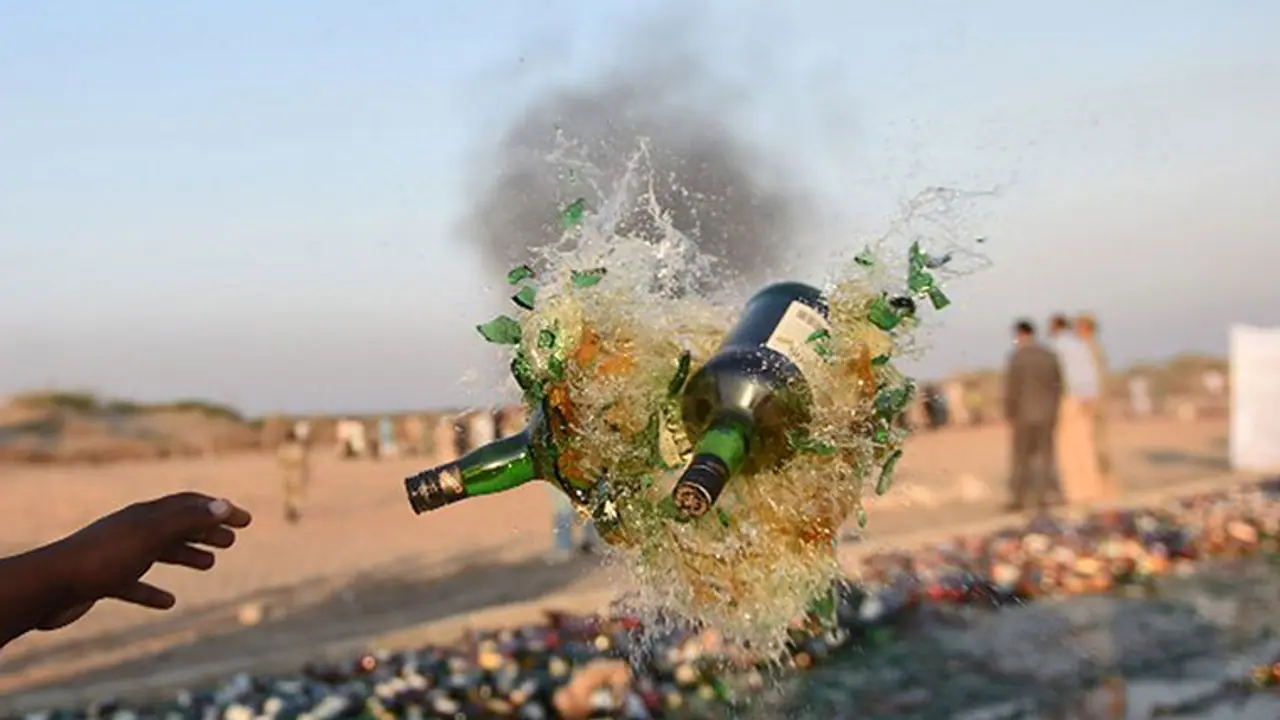Most states, including Gujarat, have a 'poor man's prohibition' since alcohol of varying potency is available in five-star restaurants and hotels.

Ostensibly this is for foreigners or tourists who come to the state for business or pleasure. However, the restaurants cannot stop those who live in the state either.
If you have the moolah, you can get a drink. The super rich can get their drinks from everywhere. And politicians certainly are not so down on their luck that they cannot make their state pay for a few dinners with 'investors'.
If you earn Rs 30,000 per month you are considered well-off and can afford to get a few drinks a month, at least. So these bans are mostly for the poor.
But let us not imagine this is some anti-poor move. The bans are usually demanded by the poor; mostly poor women, to be precise.
To be physically or mentally assaulted by a drunk man is not an experience unique to those below the poverty line. However, undeniably, it is something that happens to poor women at a statistically higher rate. They are usually at the forefront of anti-liquor demands, and politicians eager to please such a large vote-bank often concede.
Kerala banned liquor in most places this year, and the ruling UDF coalition has already made 'complete prohibition' a part of their manifesto.
Tamil Nadu is also following a similar route, with the ruling AIADMK promising prohibition in a phased manner, and the principal opposition DMK promising an outright ban on liquor. Pattali Makkal Katchi (PMK) chief ministerial candidate Anbumani Ramadoss has stated that the first file he'd put his signature on, if elected to office, would be on prohibition.
The new Bihar government, headed by Nitish Kumar, surprised tipplers and organised alcohol distillers (many of whom had put up manufacturing plants only a few years ago) alike by moving towards a prohibition policy that wasn't even a part of the Lalu-Nitish 'Grand Coalition' election promise.
It is hard to debate the demerits of such bans or the proliferation of the hooch mafia with an economically trapped woman who faces regularly physical violence from an alcoholic male member of the family, forget talking her into privileged principles such as freedom of choice, or individual liberty.
The partial ban solution, for her at least, is immediately effective.
So while the paternalistic socialist state can fix issues of some of its citizens, the inherent compromise means, like so much else, we are living with an acceptable amount of a problem, rather than fixing it.
This is jugaad, or the famed Indian Sellotape fixat it's worst.
If the idea is to lower the consumption of liquor, then better results can be achieved through free market solutions. For example, make alcohol so expensive that it turns from a daily fix into an occasional indulgence.
But India has always found it difficult to implement such universal solutions. Our movers and shakers are willing to advance the cause of the masses, but rarely willing to live like that.
So, who is this ban aimed at?
The best way to sum it up is as follows: It is the demand of the misinformed and disempowered, being enforced by people confident that they will not be significantly affected by such restrictions.
